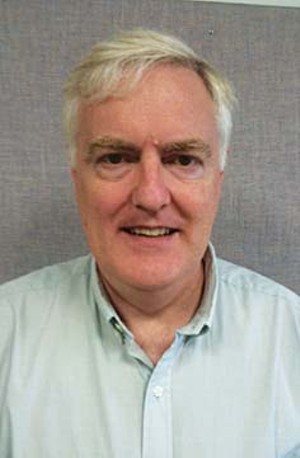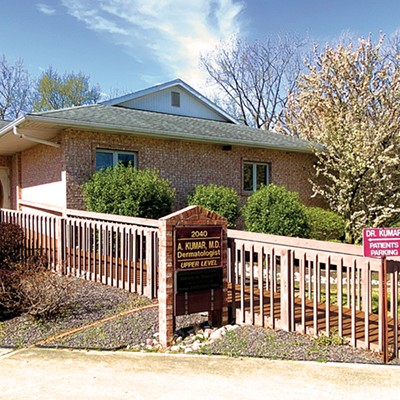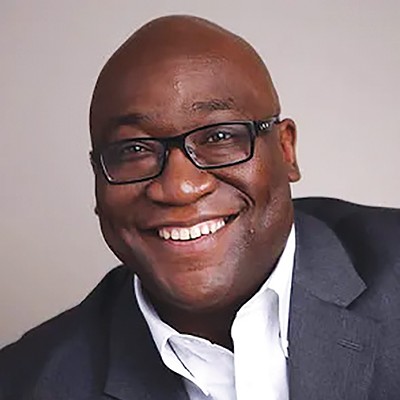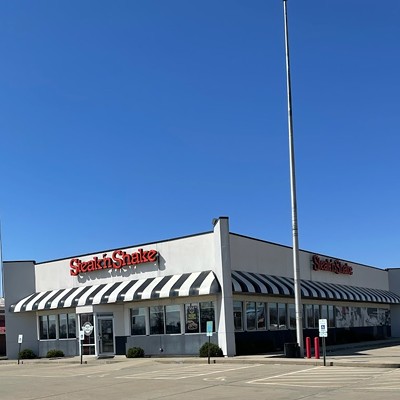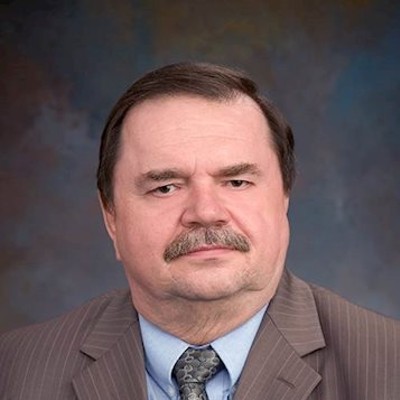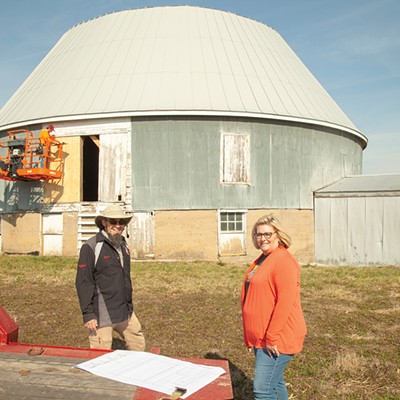Efficiency group gets organized. Slowly.
“It’s not just about cheaper.”
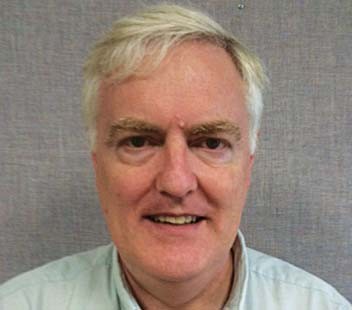
[
{
"name": "Air - MedRect Combo - Inline Content 1",
"component": "11490391",
"insertPoint": "3",
"requiredCountToDisplay": "1",
"parentWrapperClass": "fdn-ads-inline-content-block"
},{
"name": "Air - MedRect Combo - Inline Content 2",
"component": "11490392",
"insertPoint": "7",
"requiredCountToDisplay": "5",
"parentWrapperClass": "fdn-ads-inline-content-block"
},{
"name": "Air - MedRect Combo - Inline Content 3",
"component": "11490393",
"insertPoint": "12",
"requiredCountToDisplay": "9",
"parentWrapperClass": "fdn-ads-inline-content-block"
}
]
Nine months after Sangamon County voters approved the formation of a government efficiency commission, organizers hope to get the final three members of the 23-member body named so that meetings can begin.
Boards of school districts, which have two seats on the Citizens’ Efficiency Commission, have yet to designate representatives. Water district boards, which are due one representative, also have not made an appointment.
County board chairman Andy Van Meter said that he isn’t concerned.
“I can’t complain because I was slow in nominating the county’s four representatives,” Van Meter said. “We’re asking some groups to get together that don’t often meet as a group.”
The commission is charged with making recommendations for streamlining government to reduce costs. Voters approved the commission in November of last year, but appointments were delayed until after April municipal elections. Members cannot be elected officials or employees of appointing entities.
“It didn’t make sense for people to make appointments before those elections,” said Norm Sims, executive director of the Springfield-Sangamon County Regional Planning Commission that is helping with organization efforts. “We didn’t know who would be eligible.”
Sims said that he expects appointments in time for the commission to hold its first meeting in early September.
The idea was to create a commission with representatives from all taxing bodies who wouldn’t be beholden to any existing governmental structure, Van Meter said.
While turf wars are a concern, Van Meter said the size of the commission will help.
“I think the commission could be criticized for being so large,” Van Meter said. “Part of the goal was to get a broad cross-section of the community.”
Sims said a large commission isn’t necessarily a bad thing.
“Fifty-six people worked on the Declaration of Independence,” he quipped.
The commission’s final recommendations are due in November 2013, but Sims said that the commission might make recommendations as work proceeds, as opposed to issuing a single final report filled with suggestions that could require approval by elected bodies or voters.
Sims used stop signs as an example of how money might be saved. During a recent meeting of a multi-jurisdictional transportation study group, he said, representatives from small municipalities found that they pay nearly three times more for stop signs than Springfield pays, due to economies of scale. That led to a discussion of Springfield buying more stop signs than the city needs, then selling them to smaller jurisdictions, he said, with Springfield making a profit and smaller cities saving money.
“I think you’re going to see things like that,” Sims said.
Kent Redfield, a professor emeritus of political science at University of Illinois Springfield who was appointed to the commission by the Springfield Airport Authority, said that money isn’t always the most important thing.
“Just because you can make a five-percent savings, if the result is citizens feeling like they’re more disconnected from their government, then I don’t think you’ve accomplished anything,” Redfield said. “Ultimately, it’s about providing services, but citizens need to know who to call. It’s not just about cheaper.”
With revenue tight and government talking about not hiring police officers and laying off firefighters and cutting back on picking up tree branches, Redfield said that now might be the ideal time for changing the way government works.
“If we’re gong to provide services, we’ve got to be more efficient and effective in what’s going to be a bad fiscal environment in the long term,” Redfield said. “This is an environment where you hope that people are going to be willing to take a broader look at things.”
Contact Bruce Rushton at [email protected].
Boards of school districts, which have two seats on the Citizens’ Efficiency Commission, have yet to designate representatives. Water district boards, which are due one representative, also have not made an appointment.
County board chairman Andy Van Meter said that he isn’t concerned.
“I can’t complain because I was slow in nominating the county’s four representatives,” Van Meter said. “We’re asking some groups to get together that don’t often meet as a group.”
The commission is charged with making recommendations for streamlining government to reduce costs. Voters approved the commission in November of last year, but appointments were delayed until after April municipal elections. Members cannot be elected officials or employees of appointing entities.
“It didn’t make sense for people to make appointments before those elections,” said Norm Sims, executive director of the Springfield-Sangamon County Regional Planning Commission that is helping with organization efforts. “We didn’t know who would be eligible.”
Sims said that he expects appointments in time for the commission to hold its first meeting in early September.
The idea was to create a commission with representatives from all taxing bodies who wouldn’t be beholden to any existing governmental structure, Van Meter said.
While turf wars are a concern, Van Meter said the size of the commission will help.
“I think the commission could be criticized for being so large,” Van Meter said. “Part of the goal was to get a broad cross-section of the community.”
Sims said a large commission isn’t necessarily a bad thing.
“Fifty-six people worked on the Declaration of Independence,” he quipped.
The commission’s final recommendations are due in November 2013, but Sims said that the commission might make recommendations as work proceeds, as opposed to issuing a single final report filled with suggestions that could require approval by elected bodies or voters.
Sims used stop signs as an example of how money might be saved. During a recent meeting of a multi-jurisdictional transportation study group, he said, representatives from small municipalities found that they pay nearly three times more for stop signs than Springfield pays, due to economies of scale. That led to a discussion of Springfield buying more stop signs than the city needs, then selling them to smaller jurisdictions, he said, with Springfield making a profit and smaller cities saving money.
“I think you’re going to see things like that,” Sims said.
Kent Redfield, a professor emeritus of political science at University of Illinois Springfield who was appointed to the commission by the Springfield Airport Authority, said that money isn’t always the most important thing.
“Just because you can make a five-percent savings, if the result is citizens feeling like they’re more disconnected from their government, then I don’t think you’ve accomplished anything,” Redfield said. “Ultimately, it’s about providing services, but citizens need to know who to call. It’s not just about cheaper.”
With revenue tight and government talking about not hiring police officers and laying off firefighters and cutting back on picking up tree branches, Redfield said that now might be the ideal time for changing the way government works.
“If we’re gong to provide services, we’ve got to be more efficient and effective in what’s going to be a bad fiscal environment in the long term,” Redfield said. “This is an environment where you hope that people are going to be willing to take a broader look at things.”
Contact Bruce Rushton at [email protected].
Illinois Times has provided readers with independent journalism for almost 50 years, from news and politics to arts and culture.
Your support will help cover the costs of editorial content published each week. Without local news organizations, we would be less informed about the issues that affect our community..
Got something to say?
Send a letter to the editor and we'll publish your feedback in print!

